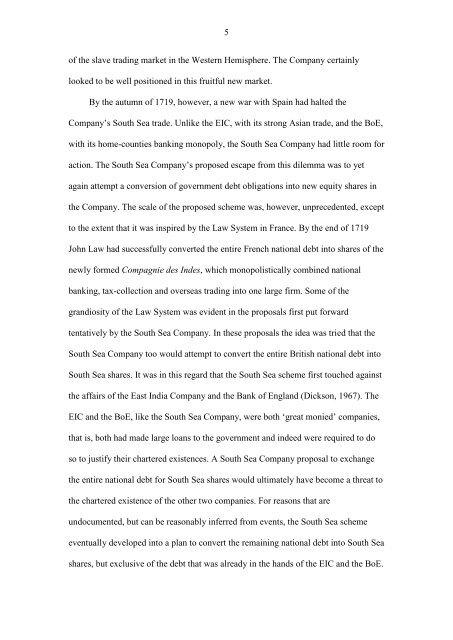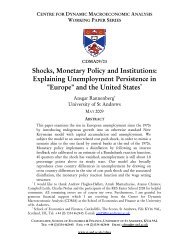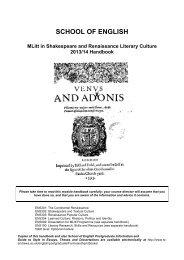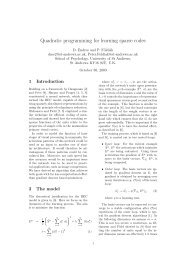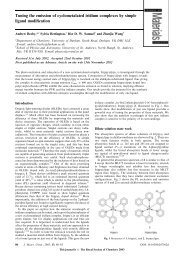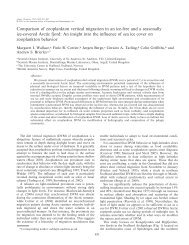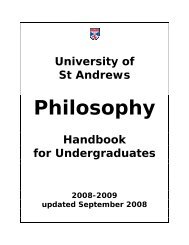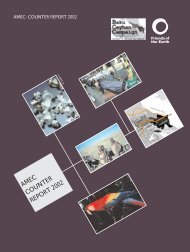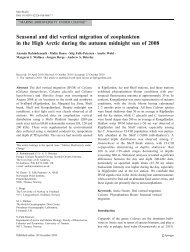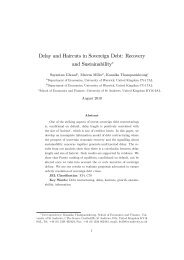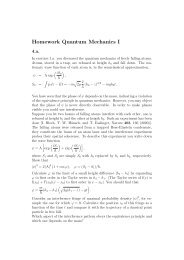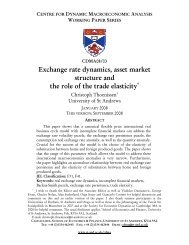East India Company Shareholders and the South Sea Bubble
East India Company Shareholders and the South Sea Bubble
East India Company Shareholders and the South Sea Bubble
You also want an ePaper? Increase the reach of your titles
YUMPU automatically turns print PDFs into web optimized ePapers that Google loves.
5<br />
of <strong>the</strong> slave trading market in <strong>the</strong> Western Hemisphere. The <strong>Company</strong> certainly<br />
looked to be well positioned in this fruitful new market.<br />
By <strong>the</strong> autumn of 1719, however, a new war with Spain had halted <strong>the</strong><br />
<strong>Company</strong>‟s <strong>South</strong> <strong>Sea</strong> trade. Unlike <strong>the</strong> EIC, with its strong Asian trade, <strong>and</strong> <strong>the</strong> BoE,<br />
with its home-counties banking monopoly, <strong>the</strong> <strong>South</strong> <strong>Sea</strong> <strong>Company</strong> had little room for<br />
action. The <strong>South</strong> <strong>Sea</strong> <strong>Company</strong>‟s proposed escape from this dilemma was to yet<br />
again attempt a conversion of government debt obligations into new equity shares in<br />
<strong>the</strong> <strong>Company</strong>. The scale of <strong>the</strong> proposed scheme was, however, unprecedented, except<br />
to <strong>the</strong> extent that it was inspired by <strong>the</strong> Law System in France. By <strong>the</strong> end of 1719<br />
John Law had successfully converted <strong>the</strong> entire French national debt into shares of <strong>the</strong><br />
newly formed Compagnie des Indes, which monopolistically combined national<br />
banking, tax-collection <strong>and</strong> overseas trading into one large firm. Some of <strong>the</strong><br />
gr<strong>and</strong>iosity of <strong>the</strong> Law System was evident in <strong>the</strong> proposals first put forward<br />
tentatively by <strong>the</strong> <strong>South</strong> <strong>Sea</strong> <strong>Company</strong>. In <strong>the</strong>se proposals <strong>the</strong> idea was tried that <strong>the</strong><br />
<strong>South</strong> <strong>Sea</strong> <strong>Company</strong> too would attempt to convert <strong>the</strong> entire British national debt into<br />
<strong>South</strong> <strong>Sea</strong> shares. It was in this regard that <strong>the</strong> <strong>South</strong> <strong>Sea</strong> scheme first touched against<br />
<strong>the</strong> affairs of <strong>the</strong> <strong>East</strong> <strong>India</strong> <strong>Company</strong> <strong>and</strong> <strong>the</strong> Bank of Engl<strong>and</strong> (Dickson, 1967). The<br />
EIC <strong>and</strong> <strong>the</strong> BoE, like <strong>the</strong> <strong>South</strong> <strong>Sea</strong> <strong>Company</strong>, were both „great monied‟ companies,<br />
that is, both had made large loans to <strong>the</strong> government <strong>and</strong> indeed were required to do<br />
so to justify <strong>the</strong>ir chartered existences. A <strong>South</strong> <strong>Sea</strong> <strong>Company</strong> proposal to exchange<br />
<strong>the</strong> entire national debt for <strong>South</strong> <strong>Sea</strong> shares would ultimately have become a threat to<br />
<strong>the</strong> chartered existence of <strong>the</strong> o<strong>the</strong>r two companies. For reasons that are<br />
undocumented, but can be reasonably inferred from events, <strong>the</strong> <strong>South</strong> <strong>Sea</strong> scheme<br />
eventually developed into a plan to convert <strong>the</strong> remaining national debt into <strong>South</strong> <strong>Sea</strong><br />
shares, but exclusive of <strong>the</strong> debt that was already in <strong>the</strong> h<strong>and</strong>s of <strong>the</strong> EIC <strong>and</strong> <strong>the</strong> BoE.


